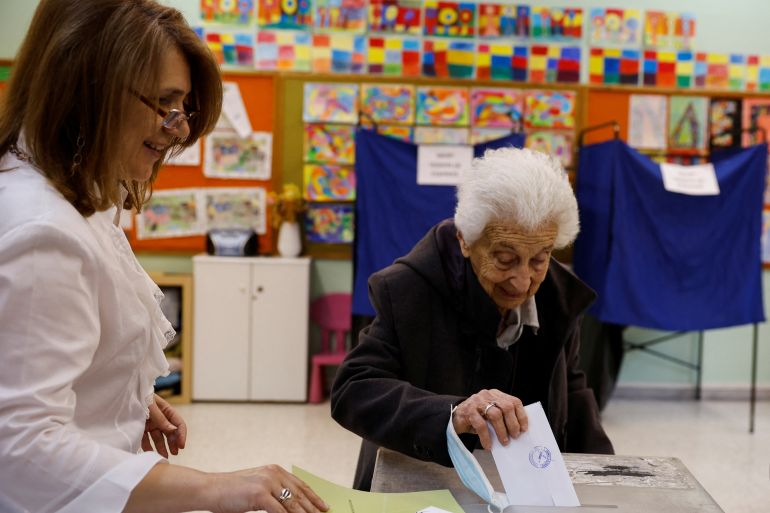Greek elections so far: All you need to know in 400 words
A simple guide to the parliamentary election in the European Union country.

Published On 21 May 2023
Millions of Greeks are casting their ballots in a general election.
Here is all you need to know.
-
- The polls opened at 7am local time (04:00 GMT) and will close at 7pm (16:00 GMT).
- A joint exit poll conducted by six polling agencies will be published as soon as voting concludes.
- A first estimate of the vote count is expected at about 8:30pm (17:30 GMT).
- The main issues affecting voters are the economy, jobs and security with neighbouring Turkey.
- Parties need to clear the 3 percent threshold to enter the 300-seat parliament.
- New Democracy, a centre-right party led by Prime Minister Kyriakos Mitsotakis, is polling 31-38 percent.
- It is followed by Syriza, the main opposition left-wing party headed by Alexis Tsipras that is trailing by 4-7 percentage points.
- The election is unlikely to produce an outright winner following a change to the country’s electoral system.
- A repeat vote is expected by early July unless the political parties agree on a coalition. This is widely seen as unlikely.
- The polls find the country in fairly strong economic health, with unemployment falling and growth this year projected to reach twice that of the European Union.
- But economic issues remain squarely in focus amid a biting cost of living crisis.
- Mitsotakis, 55, has called on voters not to throw away hard-fought economic stability.
- But Tsipras, 48, accuses New Democracy of practising trickle-down economics – nurturing only growth, but not managing wealth distribution.
- Should no party win outright, Greek President Katerina Sakellaropoulou will give the leader of the biggest party a three-day mandate to form a coalition.
- If this fails, the exploratory mandate will be handed to the second party, and then to the third. If the parties cannot agree, the president holds a final meeting with party leaders to form a government or an interim government that will call elections. If they still cannot agree, she appoints a caretaker government to call new elections. A senior judicial official, who must be the head of one of Greece’s top three courts, is appointed caretaker prime minister until the new polls.
- Crucially, in that election, the system will revert to semi-proportional representation, with a sliding scale seat bonus, increasing the chances of a party to win outright.
- Under that semi-proportional system, the winning party is awarded a bonus of 20 seats outright if it gets at least 25 percent of the vote, and can get up to 50 seats if it gets about 40 percent of the vote.
Source: Al Jazeera